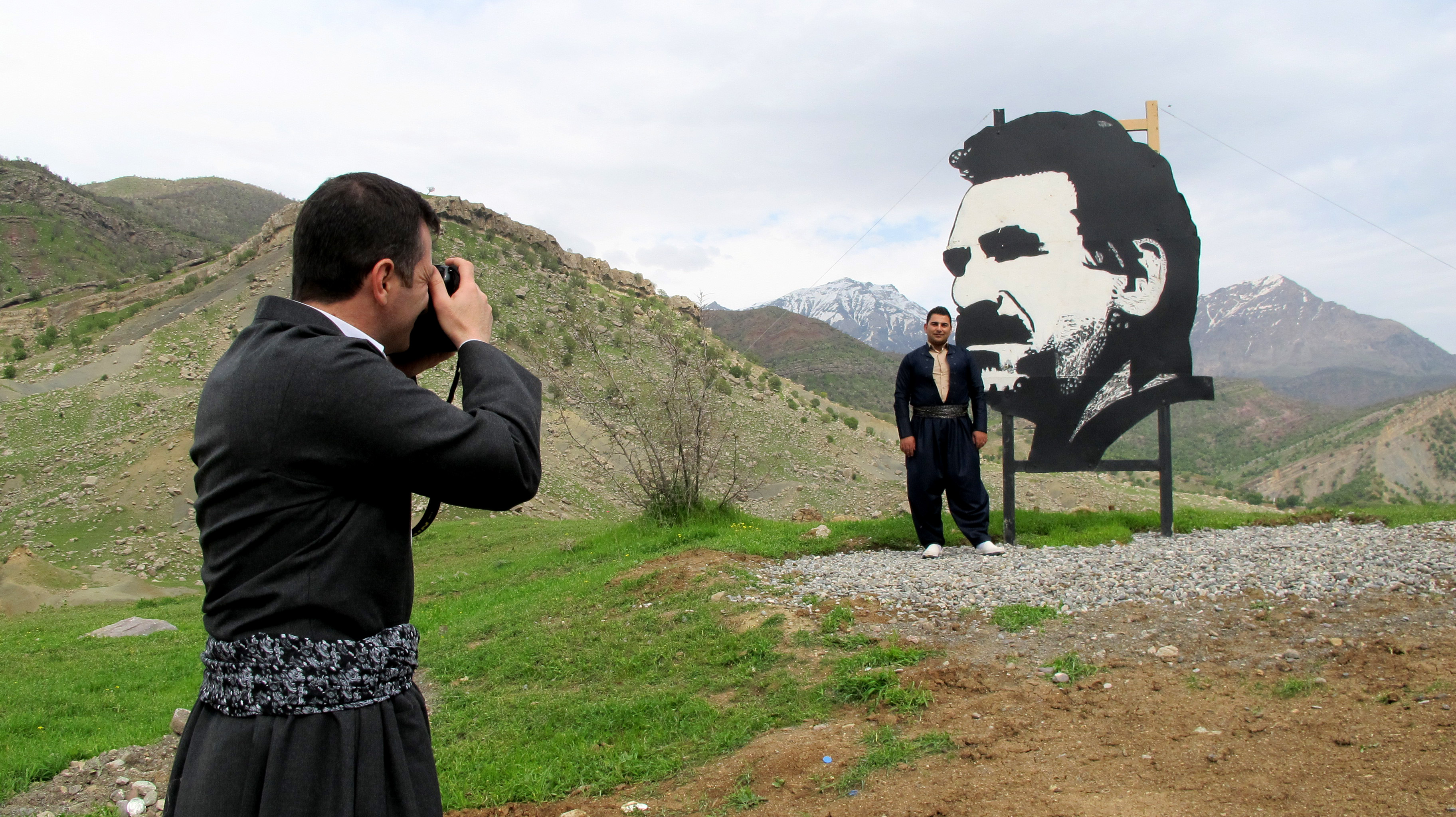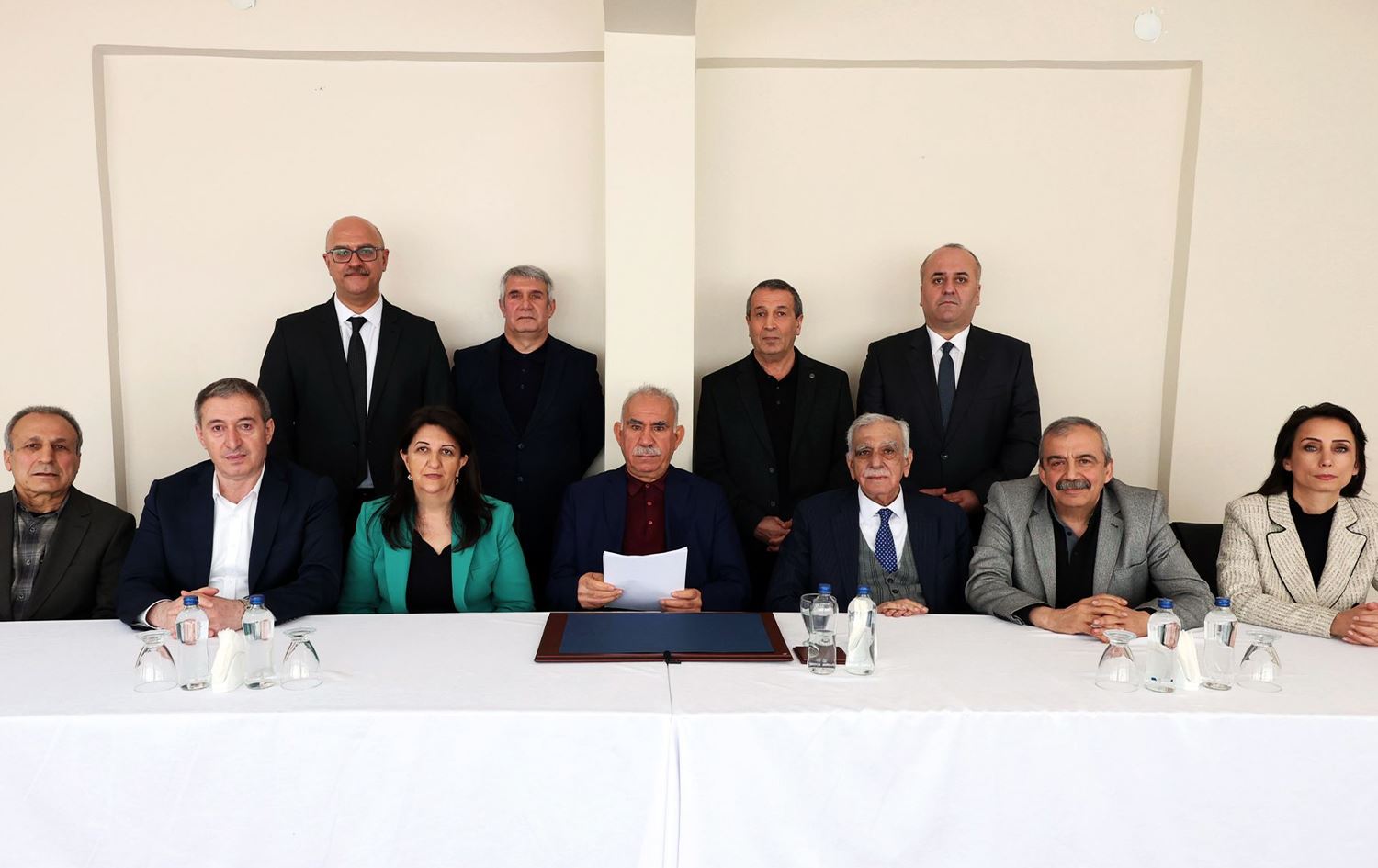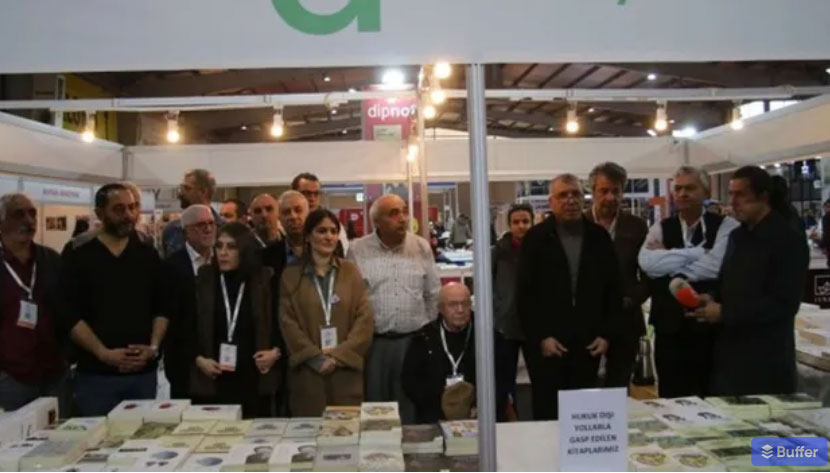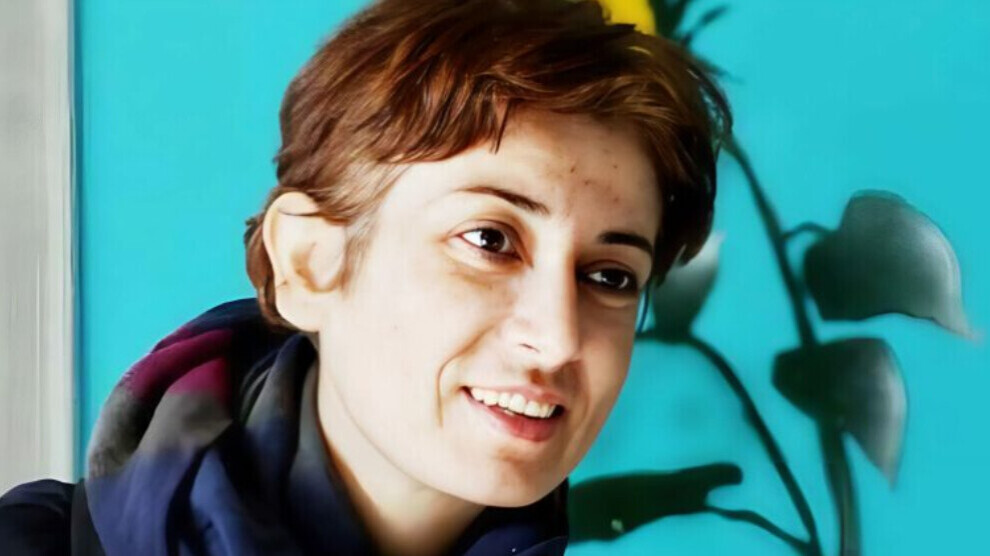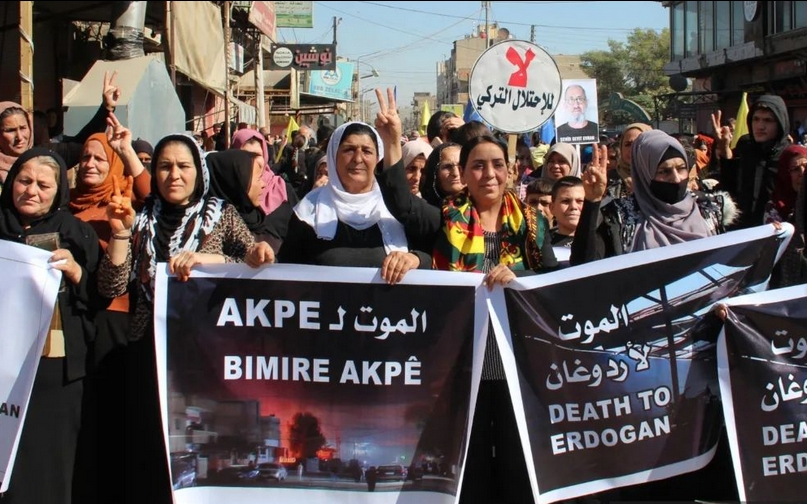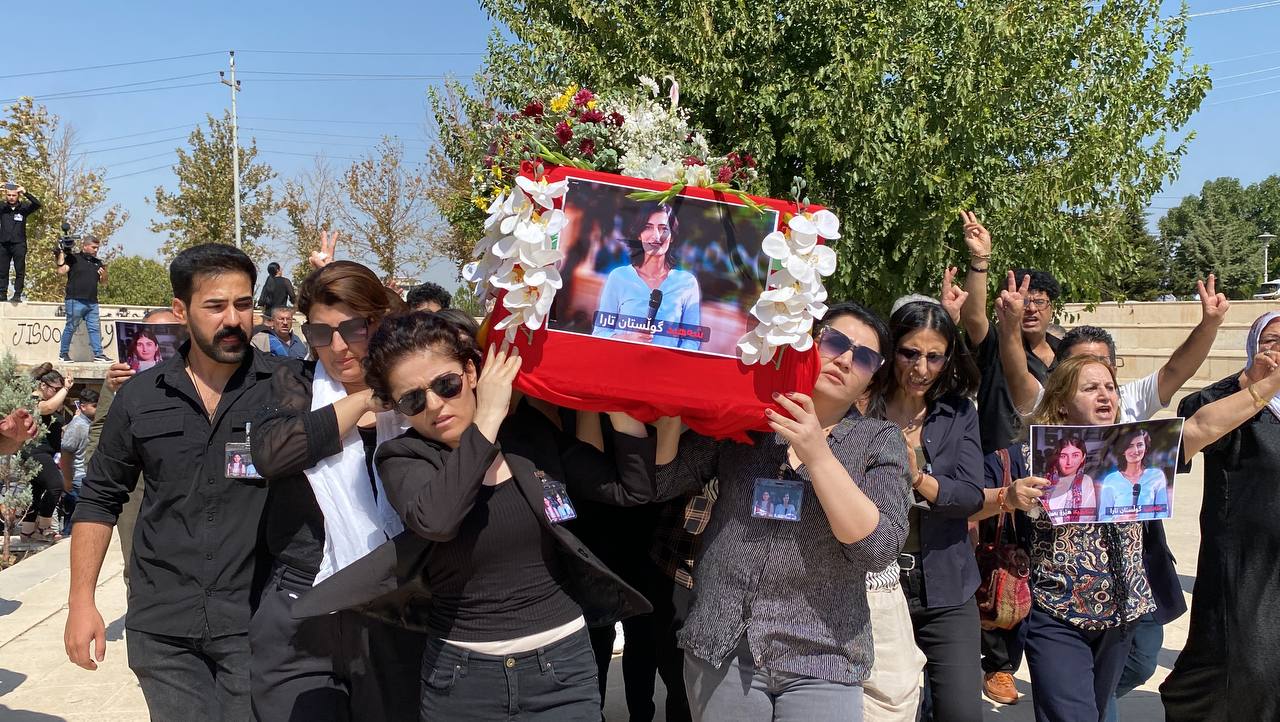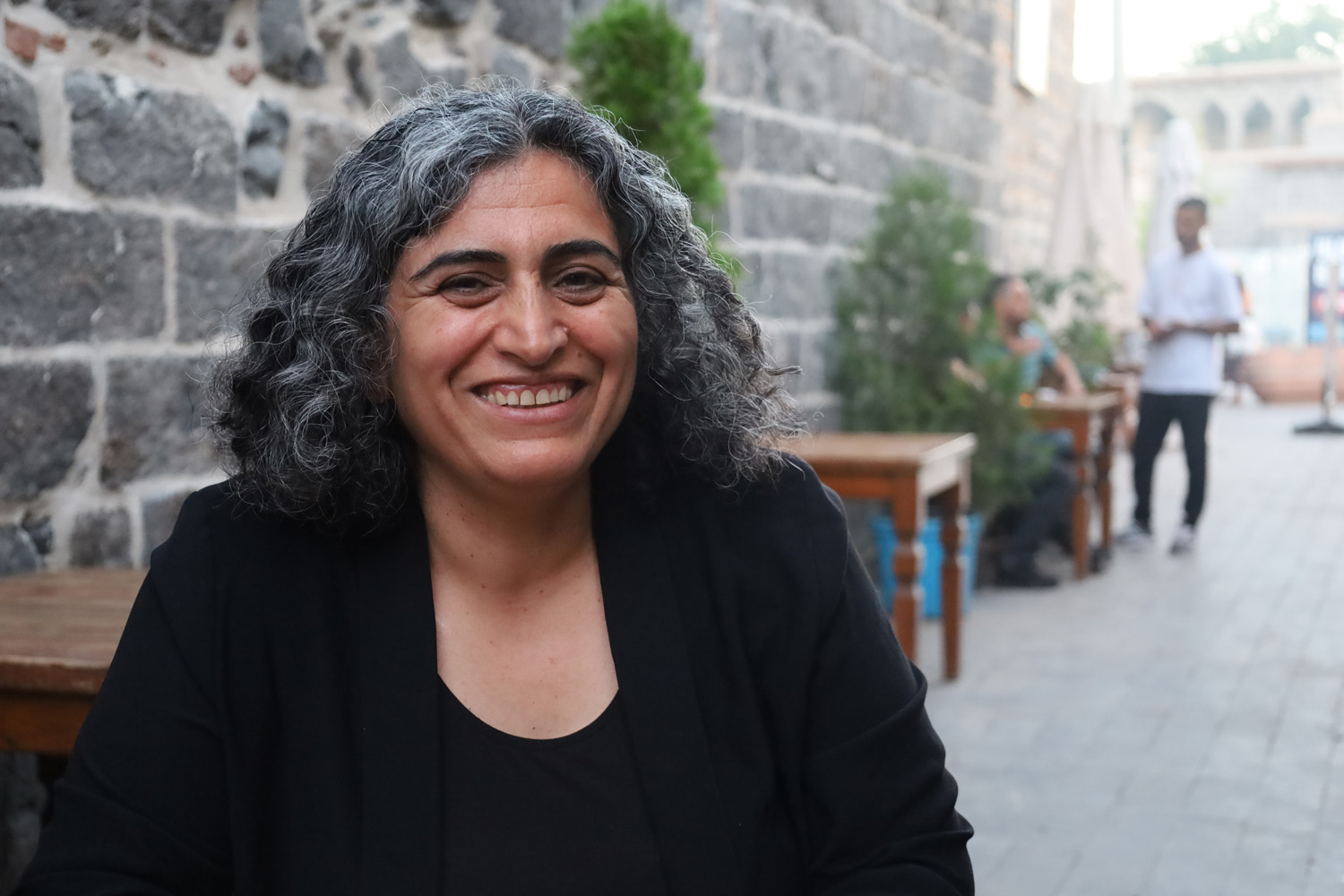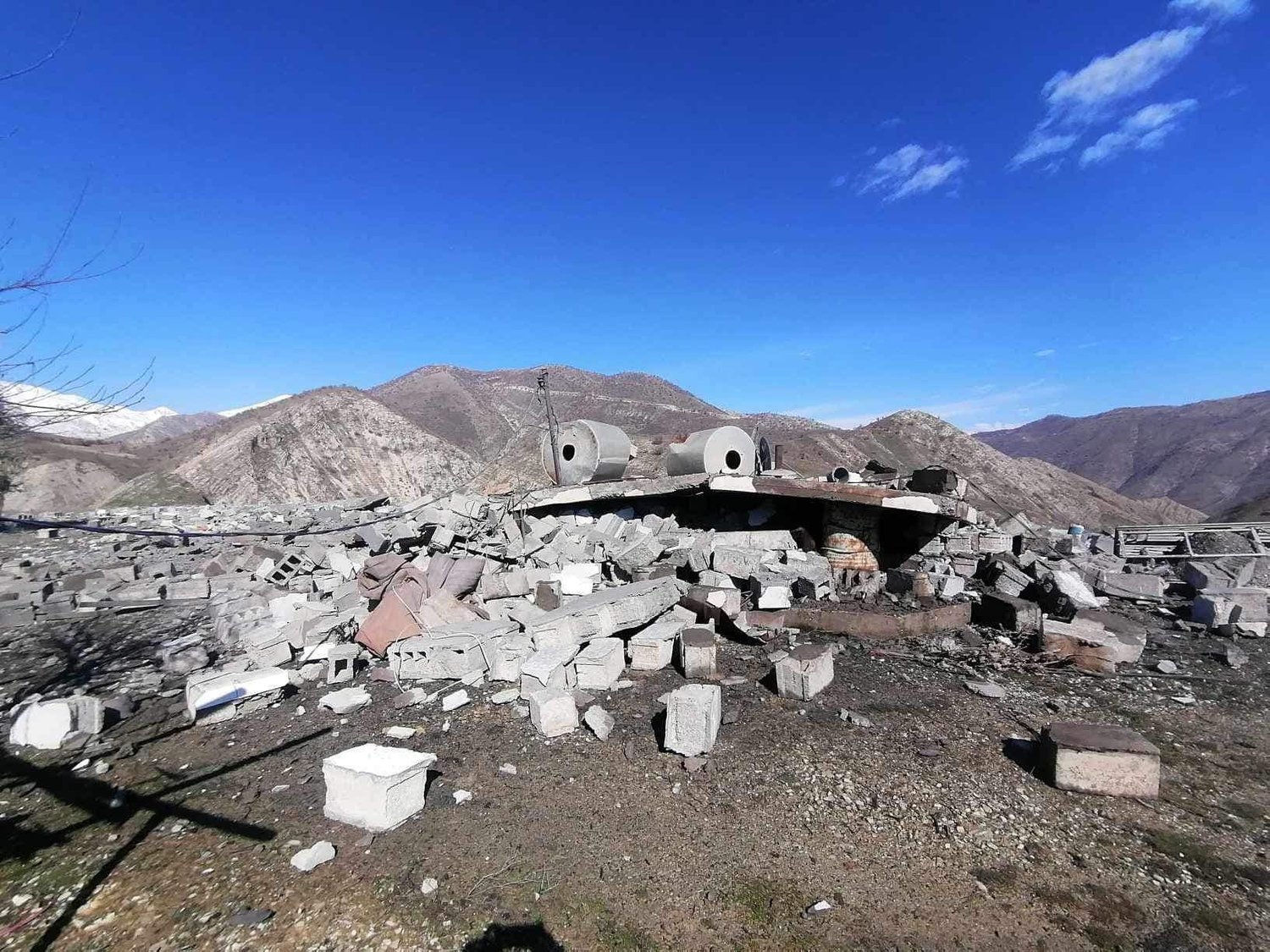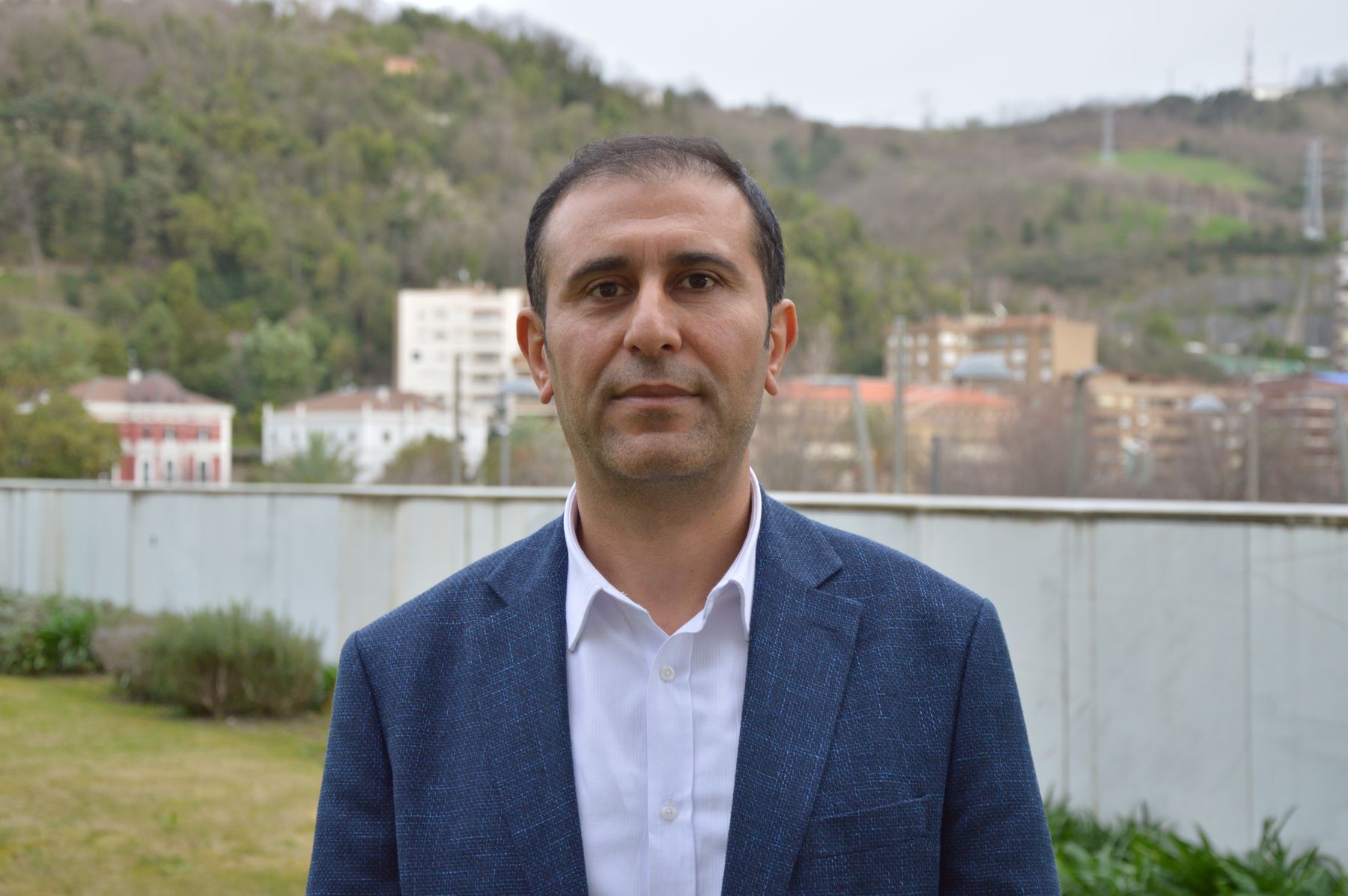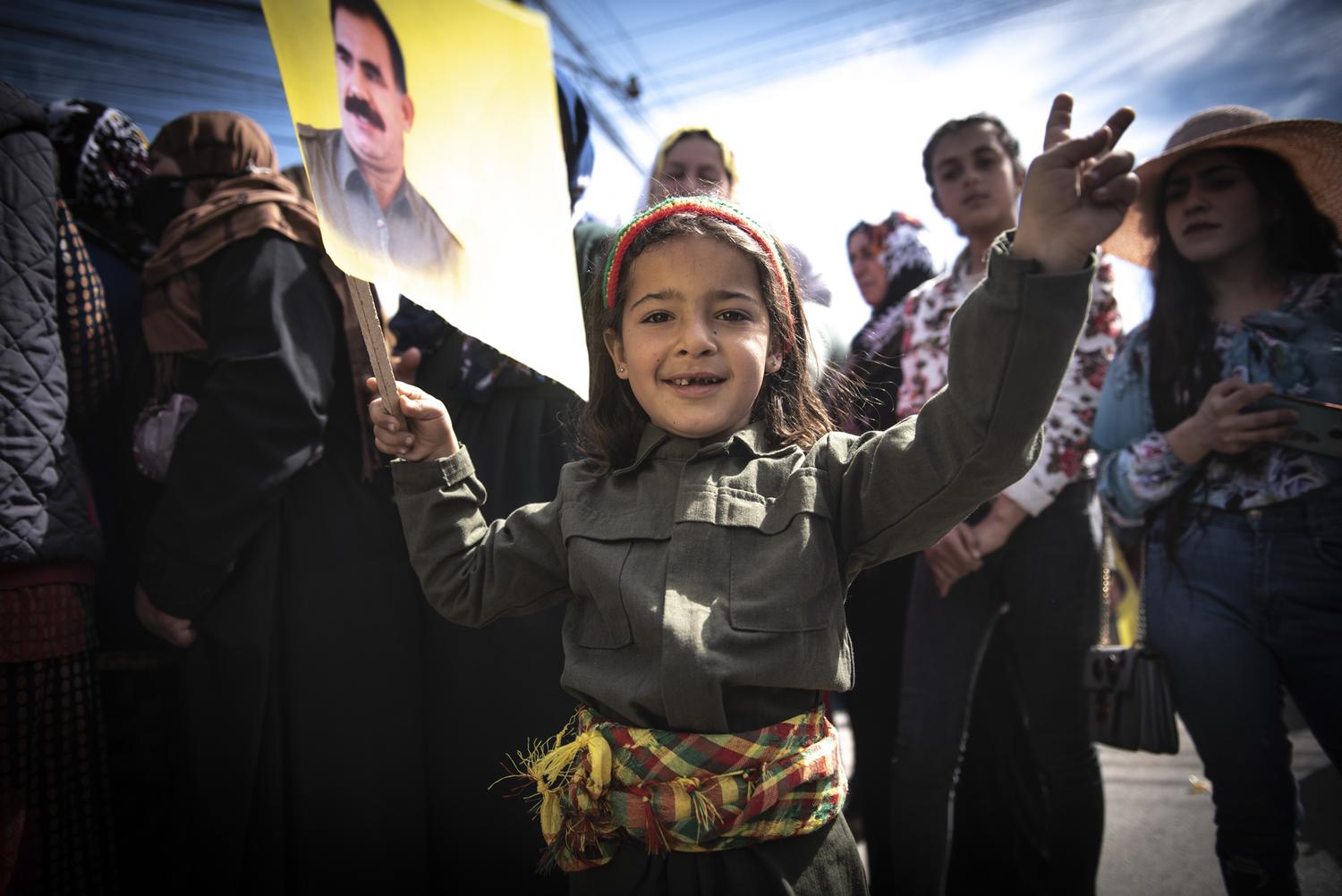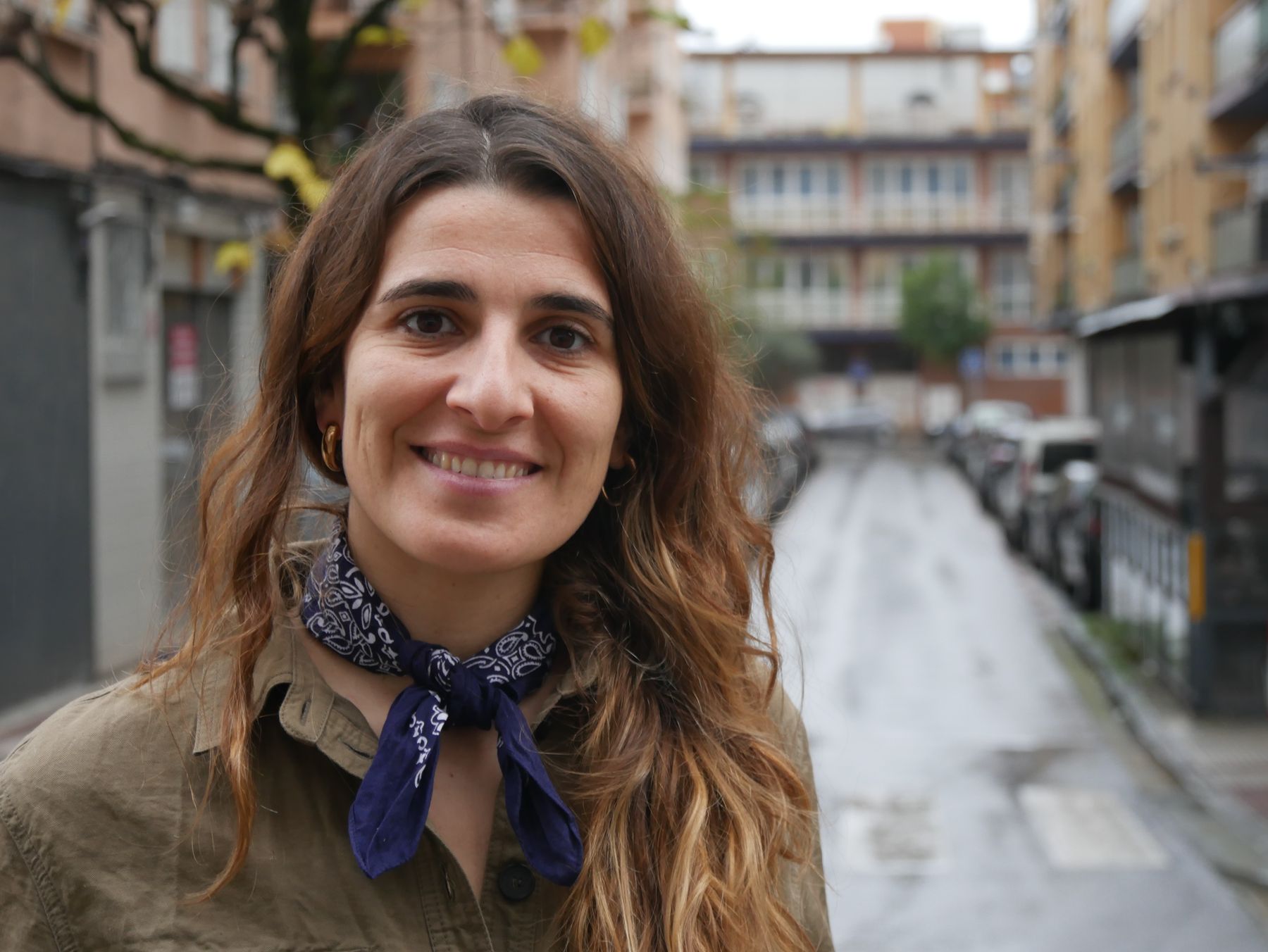“It’s important to understand that there is no perfect revolutionary movement.”
- Woman, Life, Freedom is a juicy book. From the heart of the free women's movement of Kurdistan (Women, Life, Freedom. From the heart of the free women’s movement in Kurdistan, Descontrol, 2020). In addition to the current trajectory of the women’s movement in the Kurdish liberation movement, the reader is explained by the theorized along the way, the processes of implementation of these theories and the teachings and conclusions derived therefrom. The book is the result of the collective work carried out by the Instituto Andrea Wolf and Arin is a member of the team in charge of the constitution process. For the Kurdish people, and for the Middle East in general, apart from publicizing the ideas of the movement fighting for free life, it considers that what is contained in the book can serve as a starting point and a contribution to reflections and debates of interest outside it. In the visit we made to Euskal Herria to introduce her work, we robbed her of the cake to talk about a coffee.
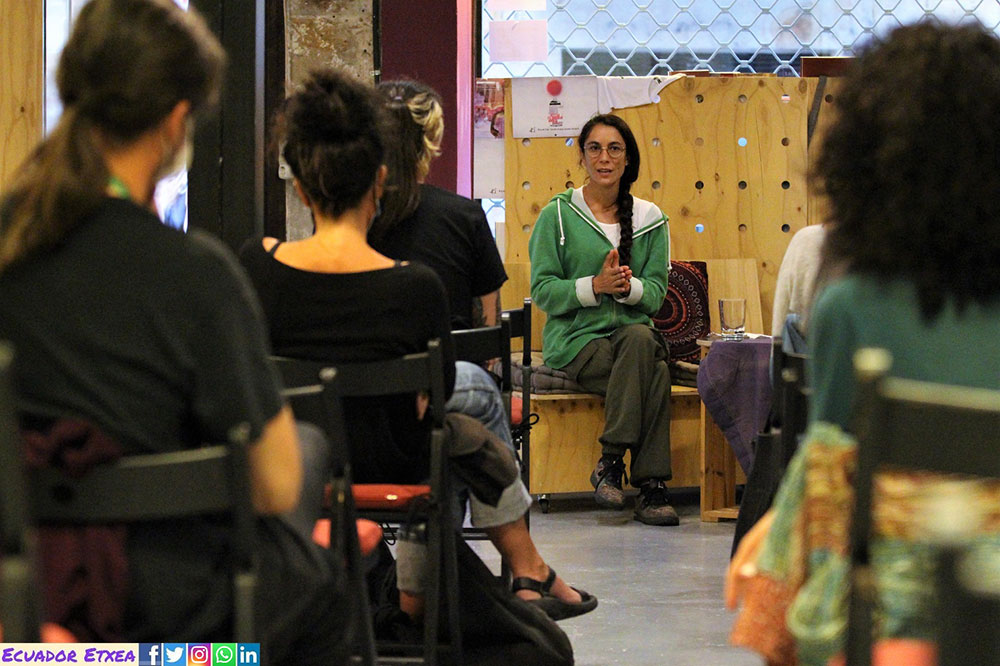
Arin is part of the libertarian movement in Madrid and, according to what he has given us to understand, political affinity corresponds to the union with the Kurdish struggle. He says that in 2014 he knew “more deeply” the liberation movement of Kurdistan during the resistance to the Islamic State in the city of Kobane, and “once the city was liberated, I had the opportunity to travel there. I realized that all the propaganda that came to us was true.” Besides in Rojava [Kurdistan from Syria] he was also in Bakur [Kurdistan from Turkey] and, after returning home, he created the Rojava-Azadi Madrid project with his friends to disseminate his own contents. In 2017 he returned to Rojava, when the Syrian Democratic Forces SDF released Raqqa from the hands of Daesh and as a journalist reported historical events in a report. Up to three years later he had not withdrawn the return card and during that time, among other things, he acted at the Andrea Wolf Institute. “There we had the proposal to create a book to explain in Spanish the history, philosophy and ideology of the free women’s movement in Kurdistan.”
Jinecology, science of free society
The Andrea Wolf Institute was born in 2019 and bears this name in honor of the first deceased German woman in favor of the liberation of Kurdistan. It has its roots in the Rojava Jineological Academy, and although it has its physical headquarters in Rojava, it has a network of cross-border collaborators. “In it, women and people socialized as women drive the development of Jineology,” can be read in the book. They have devoted a whole chapter to Jineology as an approximation to what they define as “science at the service of life and society”. The lines depicted in the book can serve as strokes to better understand what it consists of: “Jineology provides women with tools to analyze and understand the world from their point of view and from their true identity, and to bring society to a radical transformation (…) We need a review and analysis in all areas of life far from the mentality of power and oppression and from the perspective of women, of free women, who find themselves and reject the categories and lies that have imposed themselves”. At the head of the web portal based on Jinecology it is said that they are convinced that “the science developed around women will be the first step towards an adequate sociology”.
The need to develop one's own science is related to the reading of history itself. Taking up the point of view of the Kurdish revolutionaries, it is argued in the book that “patriarchal, capitalist and state imposition has carefully selected the passages of the past that extol the system of oppression”, and that history, as modern scientific practice, becomes “at the service of sexism, capitalism and colonialism”. In reference to the history that has been considered official, Arin says: “It seems that history begins with the first writings, but this approach covers only 2% of the history of society and the above is considered anthropology or archaeology. How is it possible to exclude 98% of what we are from the analysis of history?” It's called a restrictive perspective, because it leaves out the history of organized society for a long time in clans, which, above all, focused on women, to the extent that they were the support of the community. Share the thesis in the book: “Official history uses an androcentric approach, forgetting moments and historical times in which women have played a leading role.” It is precisely for this reason that the Kurds have observed in the shadows of the story dominated, following the premise of Abdullah Öcalan: “Where we lost, then we have to seek the truth.”

The historical review leads them to conclude that in the Neolithic revolution there are a number of keys to free society. This era has been called the Natural Society, understanding that the “naturalness” of the human being resides in a society organized communally around women and their values, without hierarchies between living beings and the environment. The first signs of the system of domination, since the first attempts to subordinate women, defend that in this society before the appearance there are a number of keys to a free life, such as the model of revolutionary identity. The figure of Ama-Jainkosa who drinks all the time, under the cloak of divinity, considers that he retains the character of woman who was the central figure of that society without oppression, “which represents the vanguard of revolutionary identity”. In the interiorization of this identity they see the path towards a free society, and therefore defend that, if there is a path, women will be considered avant-garde and will go through their liberation. In short, Jineology would be sociology with a feminine perspective necessary to advance towards this revolution, as explained by Heval Zozan Simak, member of the movement.
The book’s own creative process has also deepened the conjugation between the theory and practice of the Kurdistan Women’s Movement. It is the result of a process based on Jineology, in which its criticism of modern positivist science has been taken into account at all times. The same structure is an example of this, according to Arinin: “Dialogues are the backbone of the book, because we didn’t want to be stratopods with the mistakes of positivist science. We have tried to prevent the object of another corner of the world from being investigated and acting as a white subject who performs an analysis on it”. Giving prominence to the dialogues, he wanted to position himself as a transmitter of the thoughts and experiences of the members of the Kurdistan women’s movement. Arin also believes that this format gives vitality and closeness to the book: “In short, because it is women themselves who talk about their experiences, their difficulties, the obstacles encountered and the solutions found to them, and who explain what has led them to become revolutionaries.”
Contributions that may be useful
In addition to prolonging the alternative readings of history and science, resulting from years of reflection, study and debate, the interviewee considers that the book provides other contributions. Closing the way to the idealization of the Kurdish revolution, for example: “It’s important to understand that there is no perfect revolutionary movement.” He believes that this helps to prevent the copying of idealized revolutionary processes.
"If I go to the non-mixed spaces but then I go home, and I admit being crushed by my peers, I'm not making big distinctions."
However, despite the fact that the revolution taking place in Kurdish territory is not exportable as such, some of the issues in the book appear to be the starting point for possible debates of interest. For example, it seems appropriate to reflect on the Ideology of the Liberation of Women. It briefly explains that it is based on five principles: The first is the so-called Welatparez, which refers to the defense of the territory, understanding that the woman is the relationship of society with the land and the community; the second is the Free Thought and Will, that the woman who wants to be free has to act throughout life; [Women] follows the Principles of Organization; the fourth point is the struggle, and the need to conjugate life and make everything re-aesthetic. He considers it interesting to reflect on this last principle, especially here, “in Western society in which the system has manipulated ethics and aesthetics”. That is what it says: “Theoretically, they teach us different ethical values: to share, to be supportive… But then, in practice, the system drives us to be competitive and individualistic, to walk the following”. He says the same thing happens with aesthetics. “They tell us what are beautiful things, but especially in the case of women, those things hurt us, they make us sick… From the ethical and aesthetic point of view, the capitalist system has very painful implicit contradictions, and that is why we have to seek our own ethics and aesthetics.” In contrast to widespread belief, aesthetics is not called banality. In fact, as stated in the book: “Ethics and aesthetics are the principles that should guide us in the war against the system, in order to create a beautiful world. If we are guided only by hatred and anger, it is very easy to become an enemy of our own and to change beauty by agitation.”
.jpg)
Beyond the book's contributions, Arin stresses the need for an autonomous structure composed exclusively of women. Every structure of the Kurdish liberation movement has its unmixed equivalent, and the testimonies of the women contained in the book show its usefulness for the empowerment of women, to identify the problems that affect women and treat them in a climate of security, among others. Arini considers it key because it allows women to “reflect and return with clear ideas to the spaces they share with men, knowing what the needs of women and society are”. Thus, it is expected that the work in the mixed spaces will be much easier to execute. “The existence of solid female decision-making structures by themselves means that mixed structures do not fall into the decisions that do not correspond to them. This from Kurdistan is clear: for example, the Rojava justice system has its non-mixed fraction, which will deal with cases of gender-based violence. A judge will not have a head to judge the case.”
Once the non-mixed spaces were taken in the mouth, he did not want to stop mentioning the Theory of Differentiation, which has also considered an interesting contribution. Beyond spatial separation with men, the theory points to the need for mental distancing. “Because even though I go to the non-mixed spaces, I then go home, and if I recognize that they crush me, I’m not making great distinctions,” says Arin.
Results of decriminalisation work
Through the testimonies of the women who speak, the reader witnesses the process of decriminalization of the years. When we ask ourselves the results of this process so far, Arin has given us his point of view: “It is not a finished job, but progress has been made, and that has been thanks to the strong autonomous structures of women.” To advance and deepen this path, he believes that men, besides participating in mixed structures, should be in non-mixed structures that would allow reviewing their privileges, at least if “there is a real desire to build new masculinities.”
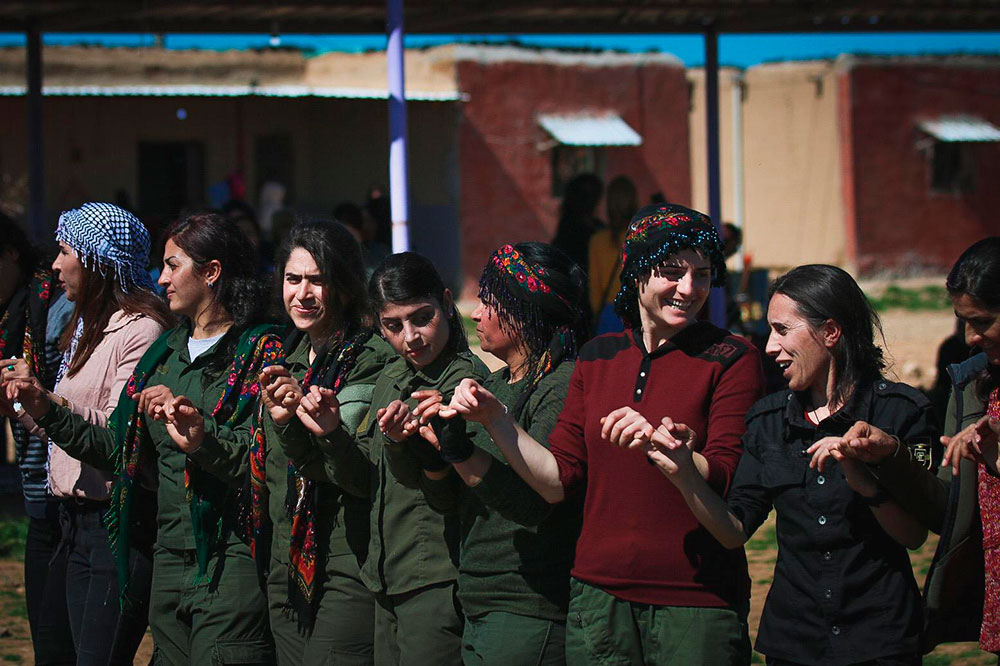
It considers, however, that some milestones have been set. The book picks up much of them, but to give an example, it talks about the process of democratization of a family that is underway and that is gradually making its way in society: “The proposal is not to destroy the family, as is being done in my eyes in the West, but to reformulate it, taking into account its importance as a support space. That is, the system and the State are based on family structures, and given that, we represent the society of the future and in that society, how should relationships? What other family model could we build? We could create a family like that of Jinwar, a village created by women, in which it can be said that children are of all women and that all their members live in coexistence.”
"The proposal is not to destroy the family, as is being done in my eyes in the West, but to reformulate it, taking into account its importance as a support space"
The process of family transformation is known as a task that will be prolonged, but with regard to individual relationships, it can be said that change is more advanced. Because, as he says, “if something is strong in the liberation movement of Kurdistan, that is Hevalti,” it means friendship in curvature and is the basis of the philosophy of the liberation movement. A friendship, yes, is constituted on its ideological principle – and, consequently, that rejects, among other things, power relations based on gender. On his way to the creation of a new model of society, Arin considers the centrality of friendship to be key for a clear reason: “The only way for the revolutionary movement to work is to create an unwavering friendship, because what the phrase ‘have fun and defeat’ says is true.”
We've interrupted the tertulia with coffee reduced to the ruins a long time ago, even though the thicker books are given for a longer conversation. The advance by Arin before turning off the recorder has suggested that in the future we will have the opportunity to speak more: a part of the material has been left unpublished and a second volume is already on the way, “based on the revolution of women in Rojava”. “If everything goes as expected, we expect it to be published next year,” he adds. It is likely that the interested person will wait a long time, as with the first book the material made available to readers offers the opportunity to reflect for a long time.
Lurrikara geopolitiko bat astintzen ari da Ekialde Hurbileko mapa. Anabasaren erdian, Abdullah Öcalanen bakerako azken deiak mahai gainean jarri du eskualdeko gatazka armatu zaharrena. Ez, aurrekariek ez diote bide ematen itxaropenari, eta historiaren trena inoiz baino... [+]
SDF kurduek gidatutako koalizioak eta Siriako Gobernuak su-etena adostu dute. SDFk Siria ekialdeko eta ipar-ekialdeko eremu zabala kontrolatzen du egun, eta hitzarmenak jaso duenez, gobernuaren esku geratuko da orain.
Abdullah Öcalan buruzagiak PKKri otsailaren 27an eskatu zion armak uzteko. Taldeak egin duen adierazpenean babes osoa agertu dio buruzagiari eta Öcalanek eskatutakoa betetzeko konpromisoa adierazi du.
Urteak iragan dira bere azken argazkia ikusi zenetik. 26 urte daramatza preso Abdullah Öçalanek Turkiako Imrali uhartean, "erakunde terroristako" buruzagitza egotzita. Ostegun eguerdian bere bideo bat ez, baina argazki berri bat zabaltzeko baimena eman du... [+]
Turkish helicopters and fighter aircraft cover the sky in the Kurdish area in northern Iraq. The Turkish Air Force has bombed 381 sites in the major military operation in recent weeks in the Kurdistan Autonomous Region (DRC). The Turkish Ministry of Defence has stated that "the... [+]











